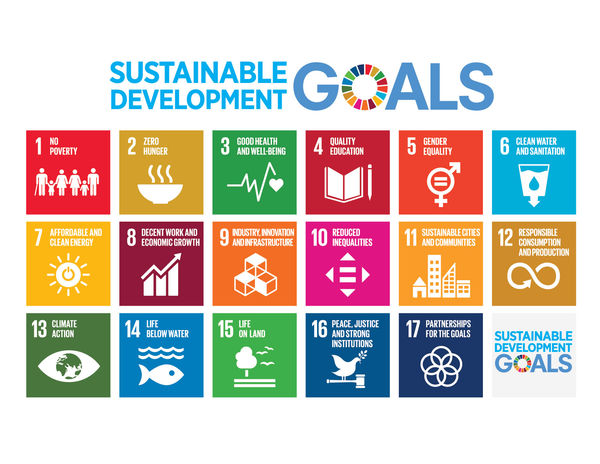Stepping up to the Global Goals – Why Canadian Colleges and Institutes?

The 17 SDGs are a series of interconnected and synergistic global targets for reducing inequality, ending poverty and hunger, improving health and education, protecting our planet, and enabling innovation and meaningful work for prosperity by 2030 (SDSN Australia/Pacific, 2017). There are 169 targets for the global goals, that will need to be achieved through the strength of partnerships among governments, business, civil society, and higher education. The recent global pandemic, that has disproportionately affected the world’s most vulnerable, has highlighted the urgent need to collectively work together to achieve these targets by 2030.
The Canadian government has embraced the universality of the 2030 Agenda and is committed to supporting the implementation of the SDGs both in Canada and internationally. Canada has developed a strategy to leave no one behind by moving forward with the SDGs. Canadian colleges and institutes are uniquely positioned to address the sustainability and climate action goals of Agenda 2030, as we prepare our students with the skills and knowledge for a sustainable future. But we need to work together! CICan’s strategic vision of Better Futures for Peoples and Communities through Strengthening the System directly supports Canada’s international commitment to meet the challenge of the SDGs and to ‘Build Back Better’.
Around the world, colleges and universities are increasingly focusing their sustainability efforts on the SDGs. In Canada, the SDGs have broadened the perspective of sustainability, as they connect to issues relating to people, planet, prosperity, peace, and partnerships that encompass all institutional priorities from climate action, to access to education, diversity, and equality.
“We all know that Canada faces many of the greatest impacts of climate change because of our northern latitudes and we know that it affects our Indigenous communities disproportionately. We know that we have to confront the energy transition. We play a role internationally when it comes to migration and resettlement, international aid and we need to continue to focus on those things. Canada has the opportunity here to rise to be the nation of the future.”
– Jean Andrey, Chair of SDSN Canada and Dean of the Faculty of Environment, University of Waterloo
The SDGs provide a guiding framework for our institutional contributions through research, curriculum, campus operations, culture and community development and are a basis for cross-institutional partnerships to tackle local and global challenges. Colleges and institutes are the incubators of new knowledge and creative approaches to solving problems through applied research, and community-based and work integrated learning. Through the strength of our social infrastructure we are also significant contributors to industry innovation and anchor institutions for our local communities.
While the SDGS are interrelated and highlight the importance of education to all sustainable development, SDG 4 (Quality Education) most specifically speaks to the responsibility of colleges and institutes (SDSN Australia/Pacific, 2017). SDG 4 calls for inclusive and equitable quality education and promoting lifelong learning opportunities for all and the targets are a call for action by higher education, which directly relate to learning and teaching activities. Specifically, targets 4.3, 4.4, 4.5 and 4.7 are the following :
-
- 4.3 By 2030, ensure equal access for all women and men to affordable and quality technical, vocational, and tertiary education, including university
- 4.4 By 2030, substantially increase the number of youth and adults who have relevant skills, including technical and vocational skills, for employment, decent jobs, and entrepreneurship
- 4.5 By 2030, eliminate gender disparities in education and ensure equal access to all levels of education and vocational training for the vulnerable, including persons with disabilities, indigenous peoples and children in vulnerable situations
- 4.6 By 2030, ensure that all learners acquire the knowledge and skills needed to promote sustainable development, including, among others, through education for sustainable development and sustainable lifestyles, human rights, gender equality, promotion of a culture of peace and non-violence, global citizenship and appreciation of cultural diversity and of culture’s contribution to sustainable development
The examples in this guide from across Canada illustrate how all five dimensions of colleges and institutes are being leveraged to advance SDG-4 and all of SDGs. They also demonstrate how the SDGs provide an opportunity for creating and strengthening linkages between each institutional dimension: applied research; academics; physical infrastructure; students and community, and finance and administration.
Finally, this guide highlights how many Canadian institutions are stepping up in creative and innovative ways to contribute to the SDGs – because it is the right thing to do – to globalize our education and fulfill our role in transforming the future by ‘Building Back Better’. Will you join us?
For further information, please see the CICan ImpAct Webinar series regarding the SDGs and Canadian Colleges and Institutes:

